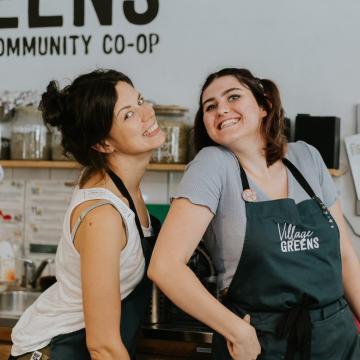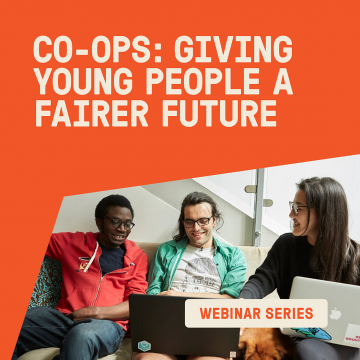North Kensington Community Energy: A community benefit society generating clean energy
Case study

For Community Champion Nasri Ismael, promoting solar power and helping local people and organisations save money on their fuel bills is rewarding work that’s combating the climate crisis.
North Kensington Community Energy (NKCE) was created in 2018 with the aim of making the London borough of Kensington and Chelsea a greener, fairer place to live by fitting community-owned solar panels on local buildings.
It’s part of Repowering London, a not-for-profit organisation that empowers communities to fund, install and manage their own renewable, local energy.
Since its creation, NKCE has installed solar arrays (a group of solar panels) on two schools, a sports centre and a community centre. It raises the funds for the panels via community share offers, attracting investment from local people.
It then sells the cheaper, cleaner energy to the building and offers a 3% return to investors. Any other surplus income is re-invested in the local community, in initiatives such as training young people to gain skills in renewable technology, communications, energy efficiency and community engagement.
Nasri Ismael is one of three Community Champions Repowering London employs to grow NKCE and build connections with local people. Using her knowledge and skills, she inspires and engages residents and communities to take climate action in their area.
“I’ve always liked anything to do with saving the environment,” she says. “I go around the community, talking to people, raising awareness about solar energy, energy efficiency and the opportunity to invest in solar power.”
Nasri is an experienced community organiser and brings to the co-op her strong network of local contacts and knowledge. She recruits volunteers and runs regular meet-ups for them.
“We meet every two weeks and plan how to reach out and how to get funding. We have a chat and see how things are going and who can take which roles. We are currently planning for installing solar panels at the St Quintin Centre for Disabled Children and Young People in North Kensington.”
For Nasri, the rewards of her role aren’t just about helping the environment. “I enjoy seeing how people benefit from volunteering. One woman looks forward to coming every two weeks. She’s alone most of the time and coming to do this gives her something to look forward to. It makes me happy that I’m helping make others happy.”
Nasri is training in how to save energy at home and is already passing this knowledge onto others. “It’s so interesting to see people wanting to know more about it,” she says.
“I recently went to an event in Islington where I was talking about how to save money and energy – and explaining how to be more mindful. For example, boiling only the water you need instead of a full kettle and switching off electrical appliances.

“People don’t know that the worst time to use a washing machine is between 4 and 8pm. That’s when everybody’s home using electricity so the rate goes higher. Washing at night is less expensive.
“Talking to people about how to save energy is more personal, and it’s really rewarding because I know I’ll help this person. Some people are having stress and depression because of the cost of energy bills.
“I show them how they can get money off their bills and explain things like winter payments. Enlightening them and signposting them to help and support, it’s really fulfilling.”
Find out more

New report: Co‑operatives help tackle mental health and employment issues experienced by younger people

Report: Offering Hope to Future Generations

Lambeth Community Solar: A co‑operative career springboard

Chapel Street Studio: A creative career kick-started thanks to co‑ops

Projekts MCR: Friendship, fun and getting paid to do what you love…

Village Greens: A joyous co‑op job that makes you feel better…

Yalla: Co-operative tech careers with greater growth and opportunity
